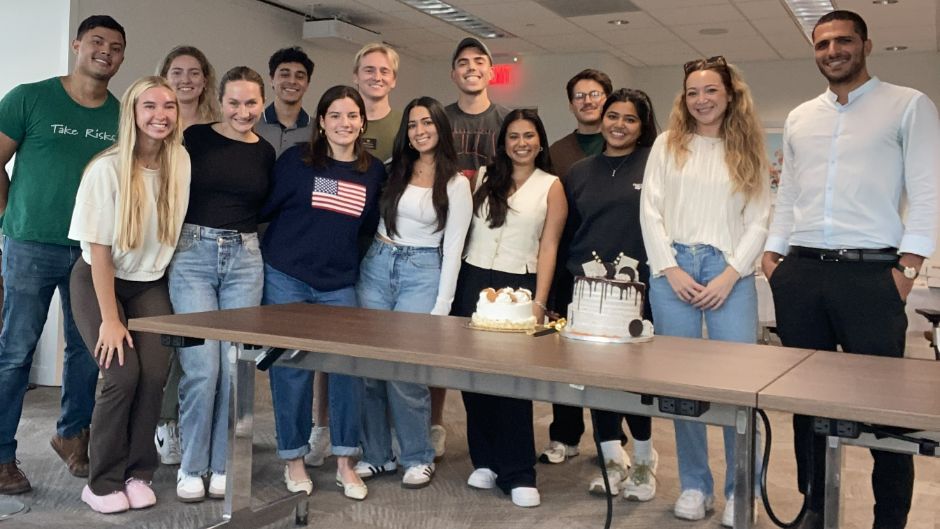The University of Miami School of Law has launched the innovative Miami Law & AI Lab (MiLA), positioning itself as a frontrunner in the responsible and effective integration of artificial intelligence into the legal landscape. MiLA’s mission is to reshape legal education, practice, and research in alignment with this vision.
"Our primary goal is to bridge the gap between traditional legal practice and emerging AI technologies," said Or Cohen-Sasson, the lab's director. "Our lab is not just studying the effects of AI technologies within the legal field—we are actively developing practical and ethical AI applications that will transform how legal professionals work and push toward high AI literacy for our students."
The lab’s current projects illustrate its forward-thinking approach. One notable initiative is the AI Bluebooking project, which is designed to automate legal citations in accordance with the Bluebook format, simplifying a tedious and time-consuming task for legal practitioners. Another significant tool in development is the Attorney's Encryption Guard for Information Security (AEGIS), named after the mythological protective shield. This software promises a confidentiality-aware interface for legal practitioners, enabling the safe use of AI technology without compromising ethical obligations regarding client privacy.
Education is at the heart of MiLA's mission as well. An on-demand video library has been established, offering a range of technical and logistical training materials that will be accessible to the Miami Law student community. To keep the broader legal community informed about advancements in AI and its implications for law, MiLA will also publish a monthly newsletter called AI-micus, featuring the latest developments in legal tech, regulatory updates, events, and other essential information for current and future lawyers.
Collaboration is integral to MiLA's operations. The lab has formed an academic partnership with a computer science research lab at Notre Dame University to investigate the intersection of AI and law through joint research projects. Furthermore, MiLA collaborates with Bonsai, a student-led programming and data science organization, to translate academic insights into practical AI tools. Looking ahead, MiLA intends to enhance the connection between legal academia and innovation by establishing strategic partnerships with industry leaders in the legal tech sector.
What sets the lab apart is its diverse team of approximately 15 interdisciplinary members, including developers and law students, who collaborate to advance various projects.
"When it comes to AI and the law, multidisciplinary backgrounds and experiences cannot be overemphasized,” said lab member Riya Goel, 2L. “Our team's varied backgrounds help us understand both what's technically possible and what's actually useful in legal practice, ultimately advancing actual, cutting-edge implementation of AI in legal practice, what we call 'AI Lawyering.'"
Cohen-Sasson adds that "there are several ways students can engage with the lab. You can take the AI & Law Practicum course (open to 2Ls and 3Ls) or discover one of our volunteer opportunities. Additionally, we recently circulated applications for our Research Award Program, offering $2,000 to accepted participants who will work on and publish cutting-edge projects in the area of AI and law."
The MiLA Lab is also hosting exciting events and encourages participation from the Miami Law community. On November 7, the lab will present a lunch-and-learn titled "The New Legal Landscape," exploring the impact of AI on the legal industry from the perspectives of practitioners, faculty, graduates, and legal technologists. In early spring 2025, the lab will host a landmark event, featuring interactive competitions, thought-provoking discussions on AI lawyering, and valuable networking opportunities with industry leaders.
"We're creating an environment where legal innovation—one that does not compromise the highest standard of quality and safety—is encouraged and supported," said Cohen-Sasson. "MiLA isn't just about teaching students about AI—it's about preparing them to lead and shape the future of law."
MiLA operates with an open-door policy, welcoming inquiries and involvement from the community. Regular updates on projects and events are available through the AI-micus newsletter and the lab's website.
Read more about Miami Law’s inaugural Law & Tech Fellow.
Read about Miami Law’s Technology Law area of study.

